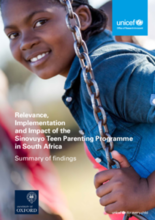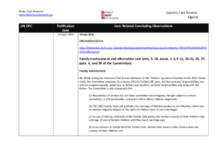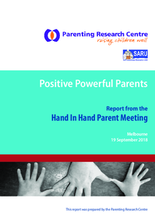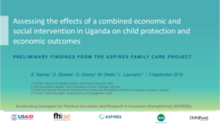Displaying 351 - 360 of 947
The authors of this study investigated the incremental impact of adding a caregiver component to a life skills programme for adolescent girls, assessing girls’ exposure to violence (sexual and others) and caregivers’ gender attitudes and parenting behaviours.
In this study, the authors explored the needs of families of children with cerebral palsy in Bangladesh. Such understanding is important as it will help to improve services for children with disabilities and their families.
This volume examines typical and atypical development from birth to the preschool years and identifies what works in helping children and families at risk.
This report summarizes research findings on the impact of the Sinovuyo Teen Parenting programme piloted in the Eastern Cape, South Africa, between November 2014 and September 2016.
This paper documents findings from an evaluation of the Live-In Family Enhancement (LIFE) program, and recommends that this approach be expanded for use in prevention as well as reunification.
This paper is rooted in research commissioned by one local authority that used an innovative visual ‘river of experience’ co- production approach to understand better the experiences of children and families on their journeys to the edge of care and to inform how statutory services might respond ‘better’, and possibly earlier, to prevent children being taken into care.
This study tested the effectiveness of Parent Management Training, Oregon (PMTO) model on child social–emotional well-being.
This country care review includes the care-related Concluding Observations adopted by the Committee on the Rights of the Child and the Committee on the Rights of Persons with Disabilities.
Positive Powerful Parents (PPP), an Australian self advocacy group run by and for parents with an intellectual disability, are currently running the Hand In Hand project which seeks to educate government and the community about the needs of families where a parent has an intellectual disability. This report describes the activities of the Hand In Hand Parent Meeting in Melbourne on the 19th of September 2018.
This presentation, delivered at the ISPCAN Conference in September 2018, highlights the preliminary findings from the ASPIRES Family Care Projects as regards the effects of a combined economic and social intervention on child protection and economic outcomes.





